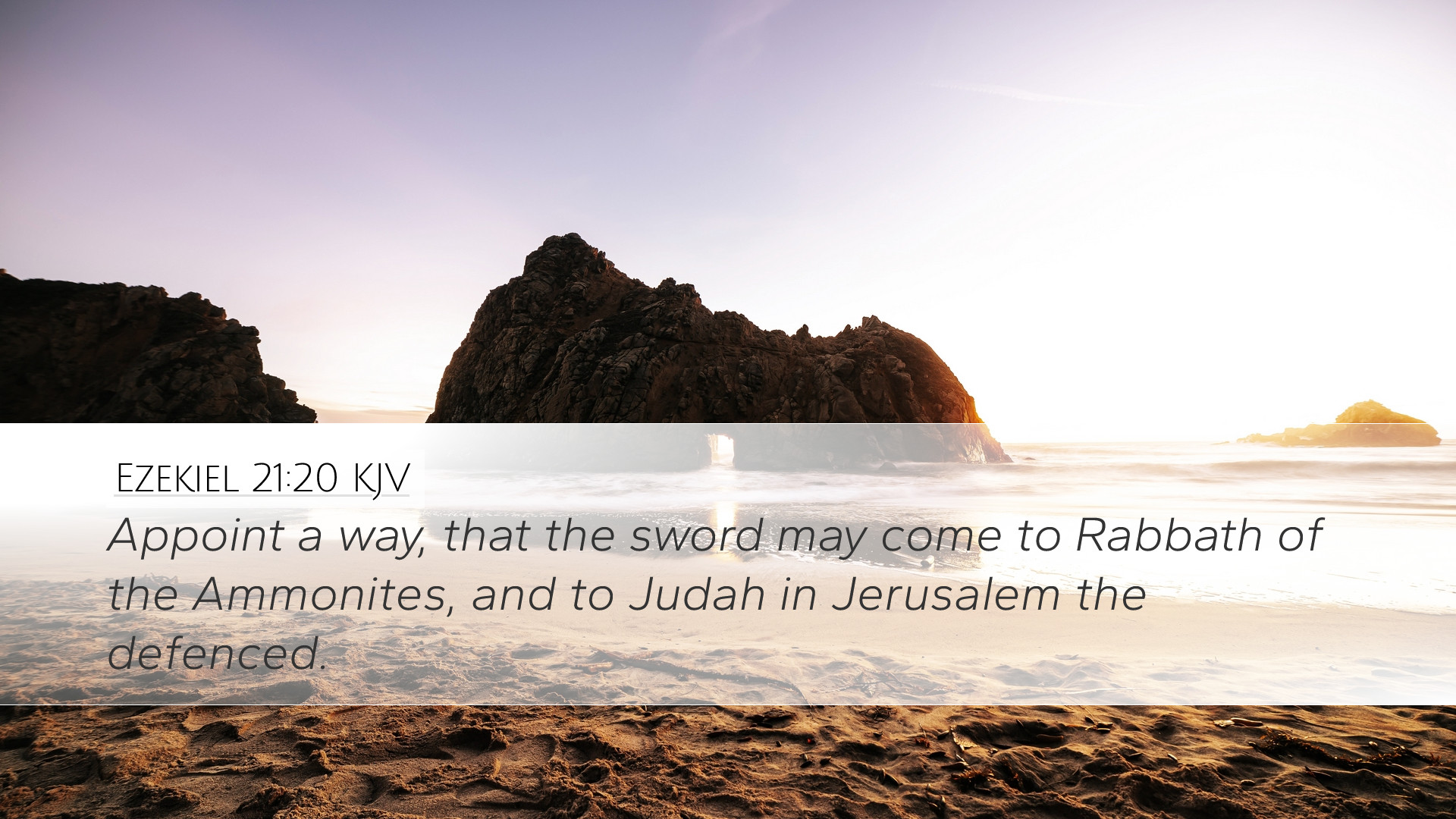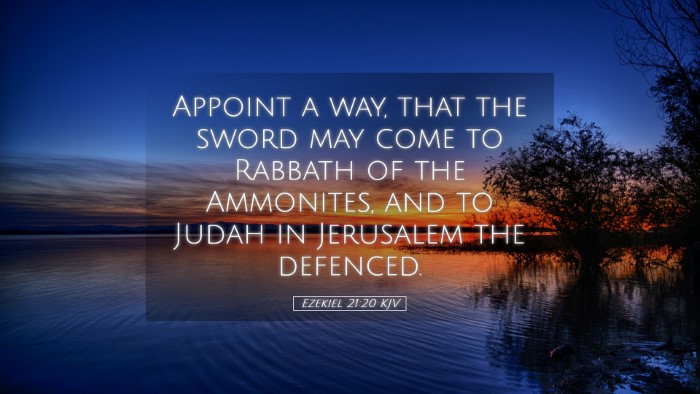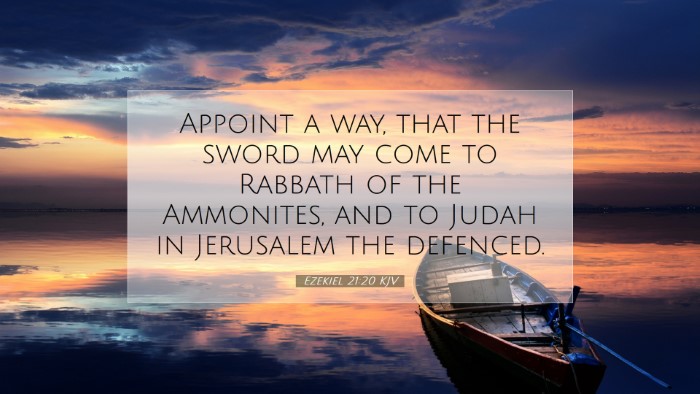Ezekiel 21:20 Commentary
Text of Ezekiel 21:20: "Appoint a way, that the sword may come to Rabbah of the Ammonites, and to Judah in Jerusalem, the defenced." (Ezekiel 21:20, KJV)
Introduction
Ezekiel 21:20 presents a pivotal moment in prophetic literature, reflecting God's sovereignty
over nations and His divine judgment against Israel and surrounding nations. This commentary synthesizes
insights from esteemed public domain commentaries, including those of Matthew Henry, Albert Barnes,
and Adam Clarke, to explore the implications of this verse for understanding God's plan and
the unfolding of biblical prophecy.
Contextual Overview
The book of Ezekiel is known for its complex imagery and profound theological insights. The
prophet Ezekiel, writing during the Babylonian exile, delivers messages of impending judgment
and ultimate restoration. In chapter 21, Ezekiel employs the imagery of a sword—a symbol of
judgment—to signify God's impending punishment upon the nations.
Historical Background
This chapter occurs during a tumultuous period in Israel’s history, characterized by
idolatry, disobedience, and the threat of foreign powers. Rabbah was the capital of the
Ammonites, a neighboring nation often at odds with Israel. God's judgment upon both
Jerusalem and Rabbah signifies His universal authority over all nations.
Thematic Insights
Divine Judgment
According to Matthew Henry, the sword in this verse symbolizes not merely
physical destruction but spiritual calamity as well. The directive to "appoint a way" underscores
the calculated nature of divine judgment. God responds to rampant sin with precise actions,
demonstrating His active role in history.
God’s Sovereignty
Albert Barnes emphasizes the sovereignty of God as He commands the path of
the sword to both Rabbah and Judah. This dual focus on the Ammonites and Israel illustrates that
no nation can escape divine scrutiny. God's rule extends beyond Israel; He governs the affairs of
all nations, dispelling the notion that proximity to God's chosen people grants immunity from judgment.
Call for Repentance
The mention of Jerusalem, referred to here as "the defenced," indicates a false sense of
security among its inhabitants. Adam Clarke points out that God’s people
wrongly believed their defenses would protect them from impending destruction. This serves as a
poignant reminder for both ancient and modern believers that worldly security is futile without
a right relationship with God and genuine repentance.
Practical Applications
Reflection on Spiritual Security
Pastors and theologians can draw significant lessons from this verse regarding the
dangers of complacency in faith. Like Jerusalem, contemporary believers may rely on external
factors—church attendance, denominational affiliation, or moral behavior—thinking these
will shield them from God's judgment. The commentary urges a return to heart-level
devotion and continual self-examination.
Understanding Judgment as a Divine Tool
The juxtaposition of Rabbah and Jerusalem urges believers to reevaluate how they perceive
judgment. Instead of viewing God’s judgments as purely punitive, they can be seen as
opportunities for correction and restoration. God, in His righteousness, uses judgment
to bring people back to Himself, offering a chance for renewal and spiritual revival.
Intercession and Advocacy
The recognition that God judges nations should motivate prayer and intercession.
As the conditions of our nations deteriorate, believers are called to be advocates for
spiritual awakening and repentance. Albert Barnes encourages the
faithful to engage in earnest prayer, seeking God's mercy for their communities and
nations, reflecting a heart aligned with God's own compassion.
Conclusion
Ezekiel 21:20 serves as a profound reminder of God's active role in history and His
unwavering justice. The insights from Matthew Henry, Albert Barnes, and Adam Clarke
elucidate that the themes of judgment, sovereignty, and the call for repentance remain
timeless. For pastors, students, and scholars alike, this commentary challenges readers to
seek a deeper understanding of their own spiritual condition and to engage fervently in
seeking God's righteousness in a world in dire need of His grace.


